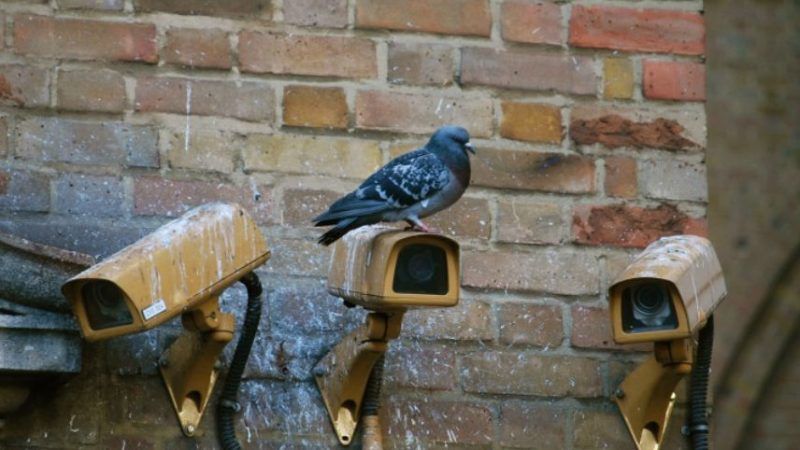Feds Give Americans the Frog Treatment
DHS looking to collect social media info from immigrants just the latest development in the surveillance society.

You've probably heard the adage about how to cook a frog. If you put a frog in a pot of hot water, it will jump out. The trick is to put it in cold water and raise the temperature slowly. Then the frog won't notice.
Most Americans didn't notice an item in the Federal Register the other day. It announced a plan by the Department of Homeland Security to collect social media information on American citizens, including their "handles" and even their search results.
The proposal extends existing government investigation and surveillance of individuals who go through the immigration process. That includes anybody with a work or student visa, lawful permanent residents, and persons who have sworn an oath to support and defend the United States as part of becoming a naturalized citizen.
The proposal to track the social-media activity of U.S. citizens shows just how far the surveillance state has come in the past couple of decades.
After 9/11, Congress and the Bush administration authorized sweeping new surveillance powers through the Patriot Act and executive fiat. Back then, warrantless wiretaps, demands for library records, the use of national security letters, and the like struck many people as alarming steps toward a police state, and they became the subject of endless news coverage.
Partisanship drove some of the concern, naturally. Republican presidents are assumed to be warmongering fascists who hate civil liberties until proven otherwise, and the expansion of the surveillance state conveniently confirmed that suspicion about George W. Bush. But the spike in domestic spying alarmed many small-government conservatives, too, and the concern produced occasional efforts to dial the needle back.
Scrutiny of domestic spying fell off the cliff around Jan. 20, 2009, when Barack Obama took the oath of office. But the new administration did not improve upon the old one and was even worse in some respects. Warrantless electronic surveillance through "pen register" and "trap and trace" authorizations skyrocketed under Obama, for instance. The Democratic president also not only signed extensions of the Patriot Act, he pushed Congress to pass them and, at one point, sought an even longer extension than House Republicans were seeking.
All of this attracted less notice, less concern, and less coverage. When it did get coverage, it often appeared in the "vitamin pages"—B12, A16, etc. So domestic spying continued apace. And it did so even after Edward Snowden blew the lid off secret programs such as PRISM, through which the NSA vacuums up vast amounts of data about Internet traffic.
The Trump administration has turned the knob another couple of clicks. Until public outrage forced it to retreat, the Justice Department was demanding that an internet web-hosting company turn over personal information about more than 1 million American visitors to an anti-Trump website that had been used by a couple hundred activists to disrupt Trump's inauguration. "The government values and respects the First Amendment right of all Americans to participate in peaceful protests," the Justice Department now says, "and to read protected political expression online."
The government has not yet backed down on its demand for social-media information about Americans and American residents. And since the proposal primarily targets immigrants, it likely will encounter less resistance than a broader measure would.
But a narrow measure that primarily targets foreigners while including some Americans can set a precedent, making broader social-media surveillance of all Americans later seem less radical than it otherwise would.
In response to concerns like these, some might ask: What of it? What's the big deal? If you have nothing to hide, then you have nothing to fear.
That is an easy argument to make in the abstract, but how many people would apply it in their own lives? You probably have nothing to hide at home, for instance—no illegal drugs, no caches of automatic weapons, no schematics of federal buildings marked up with potential bomb locations. Still, are you comfortable allowing the police to search your house—anytime they want, without a reason, and without your knowledge? (And even if you are, why should your comfort trump the discomfort of a neighbor?)
At its most basic, liberty consists of the right to be left alone. A government that subjects its citizens to pervasive surveillance without cause is not leaving them alone. And citizens who grow used to it over time allow their liberty to dissipate until—one day, when it's too late—they realize they're cooked.
This column originally appeared in the Richmond Times Dispatch


Show Comments (27)